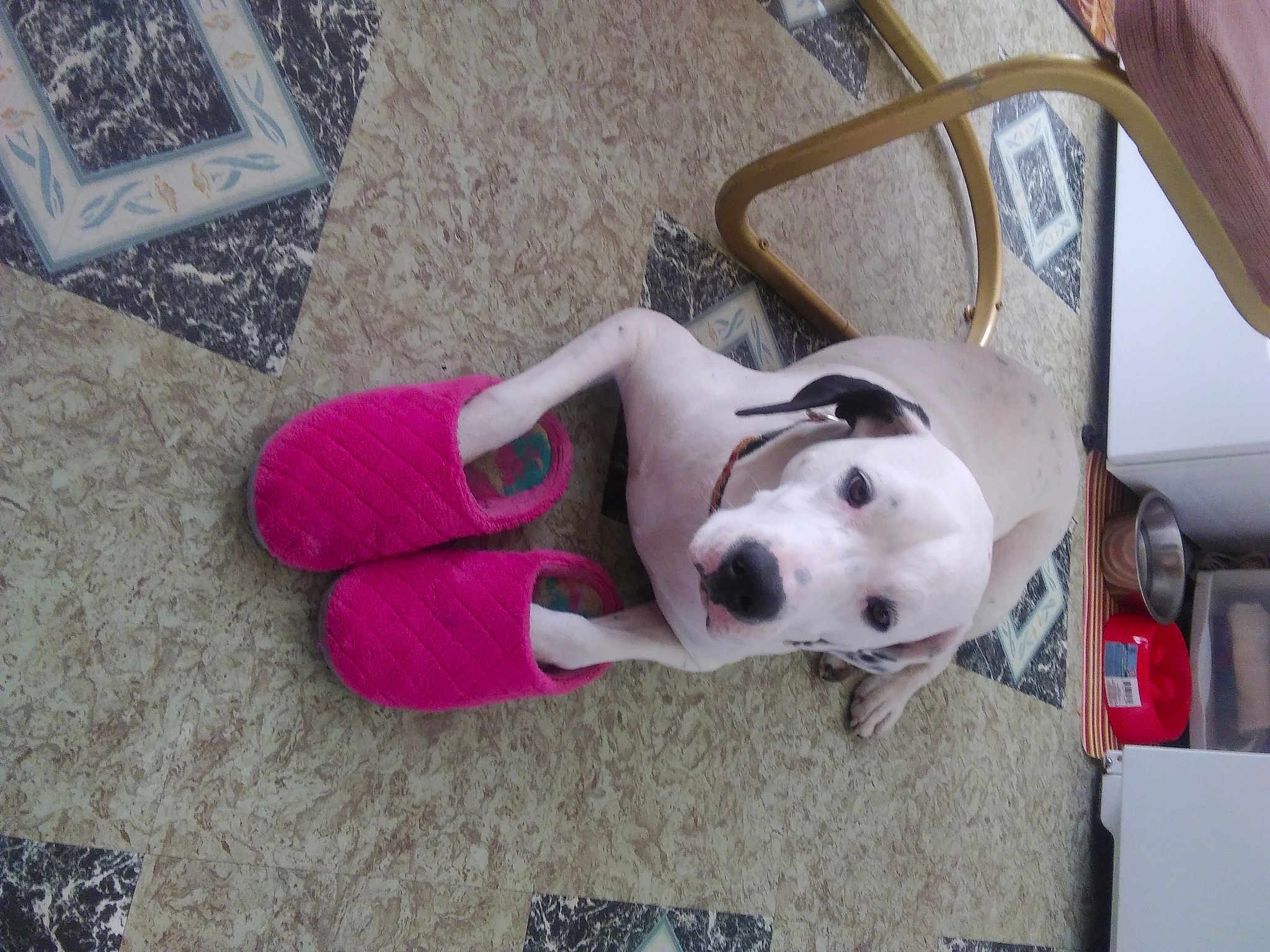“A Braque d'Auvergne, with its keen eyes and agile gait, elegantly combines the traits of a keen hunter and a charming companion.” This French breed, with its roots deeply entrenched in the mountainous Auvergne region, reflects the diverse and rich heritage that orbits around our beloved canine friends.
Personality and Behavior of the Braque d'Auvergne
The Braque d'Auvergne is often celebrated for its gentle and affectionate nature. This breed, initially bred for hunting, boasts an array of personality traits that make it a beloved companion in various settings. Known for its loyalty, the Braque d'Auvergne often forms a strong bond with its owner, making it an excellent pet for individuals seeking a reliable and faithful friend.
This breed is also known for its intelligence and responsiveness, which are key attributes for a hunting dog. It’s not uncommon for a Braque d'Auvergne to quickly understand commands and adapt to new environments. This adaptability and sharp intellect make them not only excellent hunters but also wonderfully versatile pets. Their playful nature endears them to families and individuals alike, and their eagerness to please makes training a rewarding experience.
Moreover, the Braque d'Auvergne exhibits a calm demeanor, making them well-suited for a variety of living conditions, including apartment settings, provided they get their due amount of exercise. Their friendly disposition means they are generally good with children and other animals, fostering a harmonious living environment.
The breed's inherent sociability is another highlight. Braques are amiable with strangers, balancing their alertness and welcoming nature adeptly. This characteristic can be particularly appealing to those who enjoy hosting social gatherings or taking their dog along on outings.
"A Braque d'Auvergne was historically cherished not only for its hunting prowess but also for its role as a family guardian, reflecting its dual nature as a diligent worker and a loving companion."
Meanings, History and Origins of the name Braque d'Auvergne
The name “Braque d'Auvergne” is steeped in historical and regional significance, reflecting both the breed's purpose and its geographic roots. “Braque” is a term used in French dog nomenclature, often pertaining to pointing dogs, indicative of their hunting technique where they freeze and point towards game. The latter part of the name, “d'Auvergne,” denotes the breed's origin – the rugged and picturesque region of Auvergne in central France.
This breed’s history dates back to the early 18th century, and it is believed to have evolved from crossing old French pointing dogs with other regional dogs. Over the years, the Braque d'Auvergne was carefully bred to enhance its hunting abilities, resulting in a dog that was not only skilled in locating and pointing game but also resilient enough to endure the harsh terrains of Auvergne.
The breed maintained its popularity throughout the centuries, partially due to the efforts of French nobility and avid hunters who recognized its exceptional capabilities. Its distinct black and white coat, coupled with its elegant build, makes it a standout amongst other pointing breeds.
Today, the Braque d'Auvergne continues to be prized for its historical connection, with many breeders and owners keen to preserve the essence of this noble breed. The historical reverence for this dog underlines its significance, not just as a hunting dog but as a cultural emblem of the Auvergne region.
Popularity of the Braque d'Auvergne
Though not as globally recognized as some other breeds, the Braque d'Auvergne enjoys a dedicated following, particularly among hunters and enthusiasts of French dog breeds. This loyal base of admirers appreciates the breed's rich heritage and versatile abilities.
In English-speaking countries, the Braque d'Auvergne's popularity is more niche, typically resonating with individuals who are either hunting enthusiasts or those deeply interested in unique and storied breeds. There has been a growing interest in such breeds due to a heightened appreciation for dogs with historical and regional backgrounds.
Beyond the English-speaking world, the Braque d'Auvergne holds a more prominent position in countries like France, where it is celebrated for both its practical applications and as a cultural symbol. Other European countries with a strong tradition of hunting also hold this breed in high regard, often valuing its prowess in the field as well as its amiable nature at home.
The breed's presence in various dog shows and competitions across the globe also helps sustain its popularity, showcasing its versatility and elegance to wider audiences. Each year, Braque d'Auvergne dogs feature in numerous dog events, earning accolades that amplify their appeal.
Health and Care of the Braque d'Auvergne
Taking care of a Braque d'Auvergne involves understanding its specific health requirements and ensuring it receives the proper care to thrive. Like many purebred dogs, they can be prone to certain health issues, although they are generally robust and healthy with proper care.
Common health issues for this breed include hip dysplasia and ear infections. Regular vet check-ups are essential to detect and address any health concerns early. Ensuring the dog's ears are clean and dry is particularly important, given their susceptibility to ear problems due to their floppy ears trapping moisture.
In terms of diet, the Braque d'Auvergne benefits from a high-quality, balanced diet that meets its nutritional needs, especially if it is regularly engaged in physical activities. Given its active nature, it’s crucial to monitor the dog’s weight and adjust portions accordingly to avoid obesity.
Regular exercise is paramount for maintaining the Braque d'Auvergne’s physical and mental well-being. Daily walks, playtime, and occasional hunting expeditions or field activities are ideal to keep this active breed stimulated and happy. Grooming needs are moderate; a good brush once a week suffices to keep their coat healthy and shiny.
Training and Education of the Braque d'Auvergne
Training a Braque d'Auvergne is often a rewarding experience due to the breed's intelligence and willingness to please. Early socialization and training are key to harnessing the full potential of this breed's capabilities and ensuring it matures into a well-rounded dog.
Positive reinforcement techniques work best, leveraging treats, praise, and play to encourage desired behaviors. Given their hunting background, Braques can be strong-willed at times, so patience and consistency are crucial during training sessions.
House training usually progresses smoothly with this breed, thanks to their quick learning abilities. Introduction to basic commands at a young age, followed by more complex tasks, helps in keeping their intellect engaged. Their natural inclination towards pointing can be honed through specialized training for hunting enthusiasts, further enriching the dog's skills.
Challenges in training may arise from their independent streak, which is a byproduct of their hunting instincts. Ensuring that training sessions remain engaging and not overly repetitive can help maintain the dog's interest and cooperation. Establishing a routine and boundaries early on prevents the development of undesired behaviors.
Ultimately, integrating training into their daily activities ensures that the Braque d'Auvergne remains a happy and well-adjusted member of the family. This, coupled with their affectionate demeanor, makes them a delight to train and live with.
Conclusion
The Braque d'Auvergne, with its rich history and charismatic personality, stands as a testament to the incredible variety within the canine world. This breed seamlessly balances the traits of a dedicated hunter and a loving family companion, making it a perfect choice for a wide range of owners.
At KingPet, we have seen numerous stunning Braque d'Auvergne dogs gracing our contests, showcasing their beauty and talents. Their presence reminds us of the joys of discovering and cherishing unique dog breeds. Choosing a Braque d'Auvergne can enrich your life with a loyal, intelligent, and affectionate companion, embodying both tradition and versatility.



